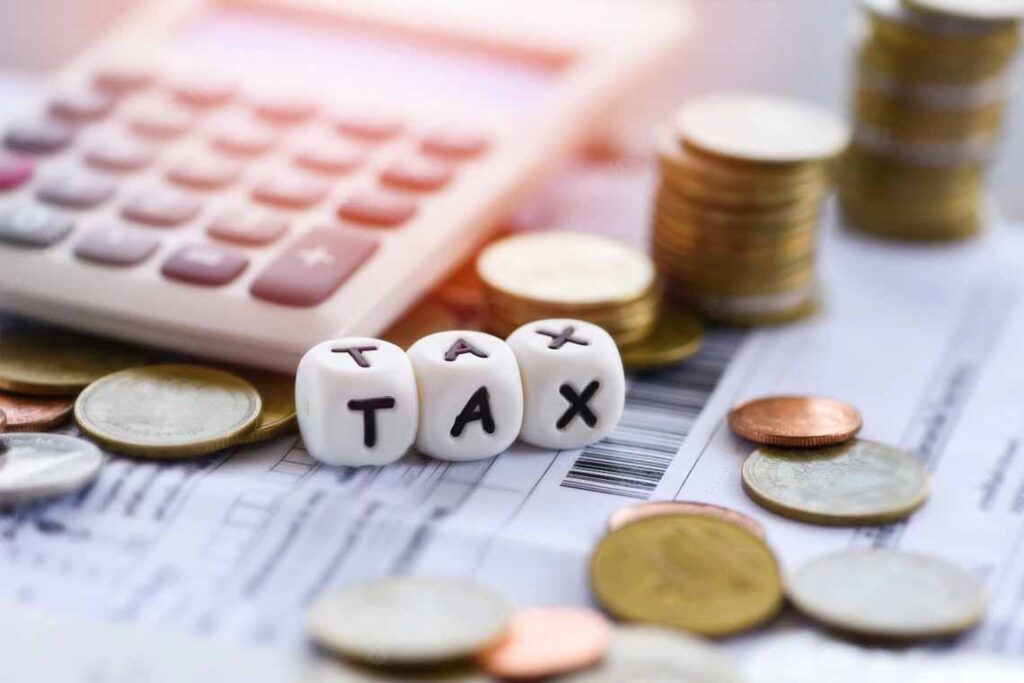1. Litigation management when in an appeal by revenue an identical question of law is pending before jurisdictional High Court or Supreme Court. [Section 115AB inserted w.e.f. 1-4.2022]
(A) Reason for making Amendment
Section 115AA of the Act provides that where the Commissioner or Principal Commissioner is of the opinion that any question of law arising in the case of an assessee (relevant case) is identical with a question of law arising in his case for another assessment year (other case) which is pending in appeal before the Supreme Court against an order of 111gb Court which was in favor of assessee, he may direct the Assessing Officer to make an application to the Appellate Tribunal stating that an appeal on the question of law in the relevant case may he filed when the decision on the question of law becomes final in the other case, subject to the acceptance of the same by the assessee.
If such a principle could be applied to cases where a question of law is common and where a decision of the jurisdictional high Court, on the same question of law is available, the filing of appeal in such cases can be avoided to reduce the amount of litigation.
(B) Amendment made
Therefore, to provide a procedure when an appeal by revenue is pending on an identical question of Law, the Finance Bill. 2022 has inserted a new section I5XAB which provides as under
Procedure where an Identical question of law Is pending before high Courts or Supreme Court [Section 158AB]
(1) Collegium may decide and inform the Principal Commissioner or Commissioner not to file any appeal In case of an assessee if any common question of law Is pending [Section 158AB(1)] :
Notwithstanding anything contained in this Act, where the collegium is of the opinion that—
(a) any question of law arising in the case of an assessee for any assessment year (such case being herein referred to as the relevant case) is identical with a question of law arising,—
(i) in his case for any other assessment year; or
(ii) in the case of any other assessee for any assessment year;
and
(b) such question is pending before—
– the jurisdictional High Court under section 260A or
– the Supreme Court in an appeal under section 261 or
– in a special lease petition under article 136 of the Constitution, against the order of the Appellate Tribunal or the jurisdictional High Court. as the case may be, which is In favor of such assessee (such case being herein referred to as the other case), the collegium may. decide and inform the Principal Commissioner or Commissioner not to file any appeal. at this stage. to the Appellate Tribunal under section 253(2) or to the jurisdictional High Court under section 260A(2) in the relevant case against the order of the Commissioner (Appeals) or the Appellate Tribunal, as the case may be.
(2) Application to be filed b the Assessing Officer on the direction of PCIT or CIT to Appellate Tribunal or Jurisdictional High Court [Section 158AB(2)]:
The Principal Commissioner or the Commissioner shall, on receipt of a communication from the collegium under section 158AB(1) notwithstanding anything contained in section 253(3) or section 260A(2)(a), direct the Assessing Officer to make an application to the Appellate Tribunal or the jurisdictional high Court, as the case may be. in such form as may be prescribed within a period of 120 days from the date of receipt of the order of the Commissioner (Appeals) or of the Appellate Tribunal, as the case may be. stating that an appeal on the question of law arising in the relevant case may be tiled when the decision on such question of Law becomes final in the other case,
(3) Direction for filing application u/s 158AB(2) to be given by PCIT or CTT after receipt of acceptance from the assessee [Section 158AB(3)]:
The Principal Commissioner or Commissioner shall direct the Assessing Officer to make an application under section 158AB(2) only if an acceptance is received from the assessee to the effect that the question of law in the other case is identical to that arising in the relevant case; and in case no such acceptance is received, the Principal Commissioner or Commissioner shall. notwithstanding anything contained in section 253(3) or section 260A(2)(a), proceed in accordance with the provisions contained in section 253(2) or in section 253(2)(c) or in section 260A(2).
(4) Assessing Officer to file appeal where the order, referred to in section 158AB(1) is not in conformity with the final decision on the question of law in the other case [Section 158AB(4)]:
Where the order of the Commissioner (Appeals) or the order of the Appellate Tribunal, as the case may be, referred to in section 158AB(1) is not in conformity with the final decision on the question of law in the other case. as and when such order is received, the Principal Commissioner or Commissioner may direct the Assessing Officer to appeal to the Appellate Tribunal or the jurisdictional High Court, as the case may be, against such order and save as otherwise provided in this section all other provision of Part B and Part CC of Chapter XX shall apply accordingly.
(5) Appeal u/s 158AB(4) to be filed within 60/120 days Section 158 AB(5)]:
Every appeal under section 158AB(4) shall be filed within a period of 60 days to the Appellate Tribunal or 120days to the High Court as the case may be, from the date on which the order of the jurisdictional High Court or the Supreme Court in the other case is communicated to the Principal Commissioner or the Commissioner (having jurisdiction over the relevant case), in accordance with the procedure specified by the Board in this behalf.
Meaning of “collegium” [Explanation] : – “collegium” means a collegium comprising of two or more Chief Commissioners or Principal Commissioners or Commissioners, as may be specified by the Hoard in this behalf.
2. Section 158AA(1) not to apply after the introduction of Section 158AB [Proviso to section 158AA(1)]
With the introduction of section 158AB. a sunset clause has been inserted in section 158AA(1) to provide that no direction shall be given under section 158AA(1) on or after 1-4-2022.
3. Amendment in the provisions of section 248 of Income-tax Act and insertion of new section 239A [Section 239A inserted w.e.f. 1-4-2022]
(A) Reason for making Amendment
Section 248 of the Act provides that in a case where, under an agreement or other arrangement, a person who has deducted tax on any income paid to a non-resident, other than interest, under section 195 of the Act. he may appeal to the Commissioner (Appeals) for a declaration that no tax was deductible on such income, if he claims that such tax is to be borne by him since no tax was required to be deducted on such income. Such appeal can be filed alter making payment of tax so deducted to the credit of the Government account Further, section 249 of the Act lays down that an appeal under section 248 of the Act should be filed within 30 days of making payment of such tax to the Government account.
To obtain a refund of the tax deducted and paid by a person, where it was not deductible, as per the provisions of section 248 of the Act, a taxpayer has no recourse to approach the Assessing Officer with such request. He has to necessarily enter the appellate process by filing an appeal before the Commissioner (Appeals). Al the same time, the agreement or arrangement, under which the tax has been deducted and paid, is not brought on the record of the Assessing Officer or examined by him.
(B) Amendment made
New section 239A inserted w.e.f. 1-4-2022
The following new section 239A has been inserted which provides as under:
Refund for denying liability to deduct tax in certain cases. [Section 239A]
1. Application for refund of tax deposited under section 195, if the deductor claims that no lax was required to be deducted [Section 239A(1)]:
Where under an agreement or other arrangement, in writing, the tax deductible on any income, other than interest, under section 195 is to be borne by the person by whom the income is payable. and such person having paid such tax to the credit of the Central Government claims that no tax was required to be deducted on such income, may. within a period of thirty days from the date of payment of such tax. file an application before the Assessing Officer for refund of such tax in such form and such manner as may be prescribed.
2. AO to allow or reject the application [Section 239A(2)]:
The Assessing Officer shall. by an order in writing, allow or reject the application:
Provided that no application under section 239A(1) shall be rejected unless an opportunity of being heard has been given to the applicant.
3. Assessing Officer may make necessary Inquiry Section 239A(3)]:
The Assessing Officer may, before passing an order under section 239A(2), make such inquiry as he considers necessary.
4. Order to be passed within 6 months [Section 239A(4)]:
The order under section 239A(2) shall be passed within 6 (six) months from the end of the month in which application under section 239A(1) is received,
Consequential amendments
(i) If a person had made an application u/s 239A(1) and he is not satisfied with the order of the Assessing Officer passed u/s 239A(2), he may go into appeal against such order before the Commissioner (Appeals), under section 246A
(ii) Further, the provisions of section 248 will not apply in cases where the date of tax payment, to the credit of Central Government is on or after 01-04-2022.
4. Giving powers to PCC/CCIT/PCIT to invoke the provisions of section 263 in cases of transfer pricing [Section 263 amended w.e.f. 1-4-2022]
(A) Reason for making Amendment
Section 263 of the Act contains the provision for revision of order which is erroneous insofar as it is prejudicial to the interests of revenue. An order under section 263 of the Act can be passed within two years from the end of the financial year in which the order sought to be revised was passed,
As per provisions of section 92CA, if the Assessing Officer considers it necessary or expedient, he may, with the approval of the Principal Commissioner or Commissioner refer the computation of arm’s length price ALP or specified domestic transaction entered into by an assessee, to the Transfer Pricing Officer (TPO). The TPO passes an order determining the ALP in an international transaction or specified domestic transaction under the provisions of section 92CA and send it to the Assessing Officer for final income determination. However, it is not clear as to who has the power under section 263 to revise the order of the TPO passed under section 92CA.
(B) Amendment made
Therefore, the Finance Bill, 2022 ha amended the provisions of section 263 so as to provide that the Principal Chief Commissioner or the Chief Commissioner or the Principal Commissioner or Commissioner who is assigned the juridiction of transfer pricing may call for and examine the record of any proceeding under this Act, and if he considers that any order passed by the TPO, working under his jurisdiction. to be erroneous in so far as it is prejudicial to the interests of revenue, he may pass an order directing revision of the order of TPO.
Consequential changes made in section 153
The Finance Bill, 2022 has
(i) amended section 153 inter alia to provide two months’ time to the Assessing Officer to give effect to the order of TPO consequent to the directions in the revision order.
(ii) provided that the provisions of section 153(3) and (5) shall also be applicable to order passed by Transfer Pricing Officer under section 92CA.
(iii) inserted section 153(5A) to provide that where the Transfer Pricing Officer gives effect to an order or direction under section 263 by means of an order under section 92CA and towards such order to the Assessing Officer, the Assessing Officer shall proceed to modify the order of assessment or reassessment or re-computation, in conformity with such order of the Transfer Pricing Officer, within two months from the end of the month in which such order of the Transfer Pricing Officer is received by him.
(iv) provided that the said provisions of the section 153(6) shall also be applicable to orders referred to in the section 153(5A) inserted in the Act.











